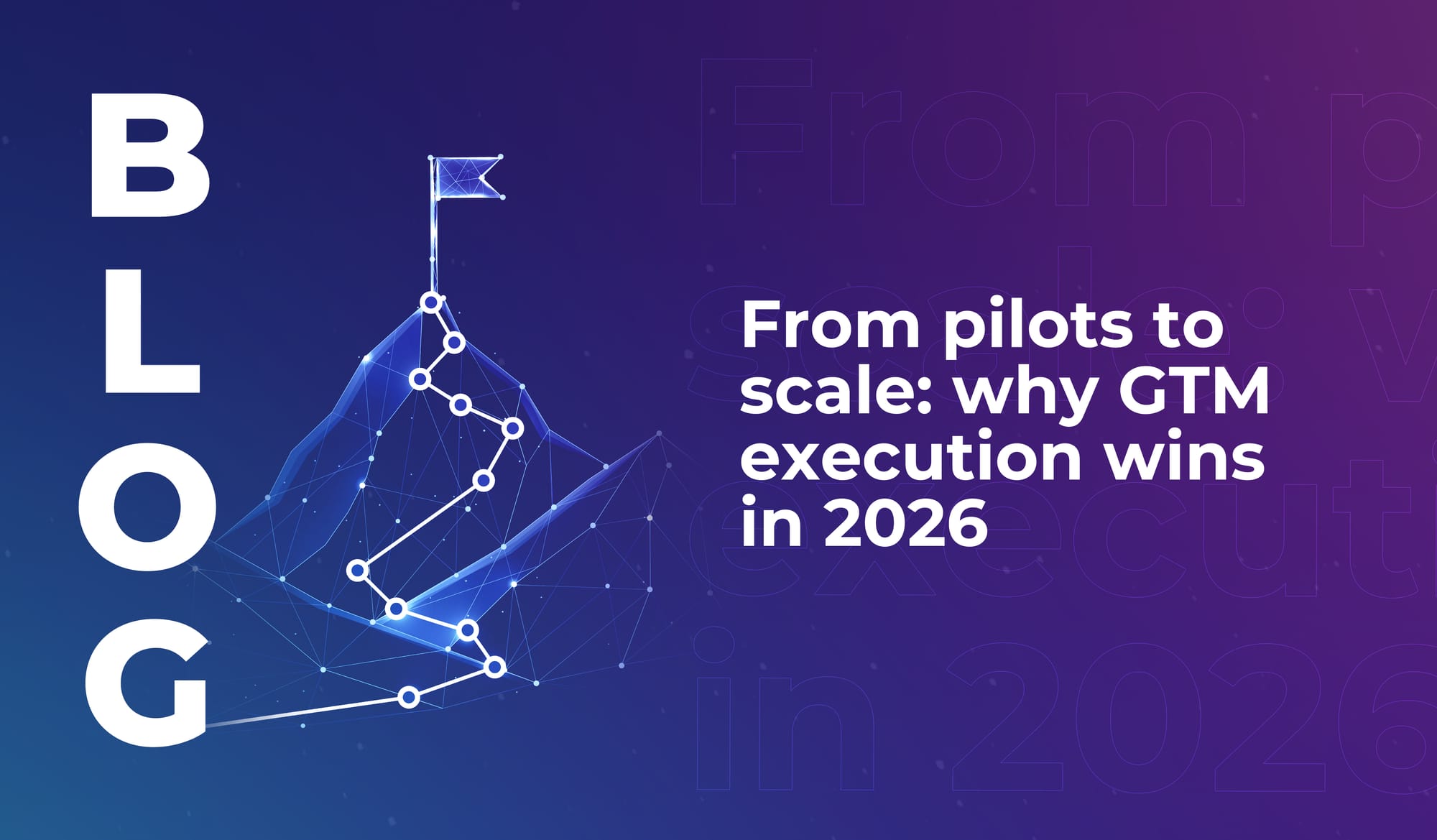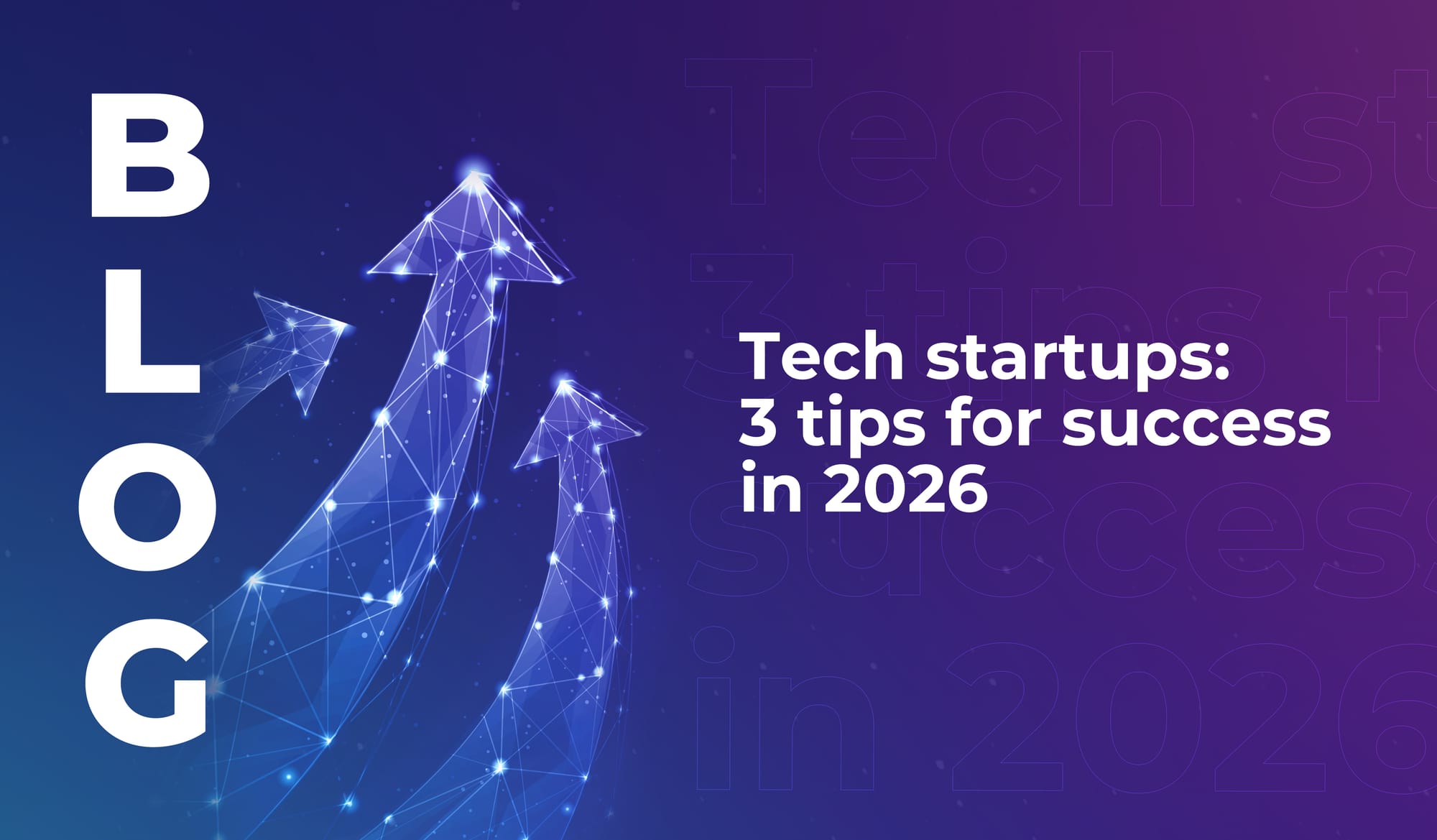
From pilots to scale: why GTM execution wins in 2026
Why 2026 is the year startups have to move beyond pilots. New research shows go-to-market execution, not demos, is the real growth advantage.


CEOs around the world are talking about AI as the foundation of business reinvention. They’ve already decided they need to use it, and now they’re figuring out how fast they can move.
In a 2025 report on scaling AI, Accenture calls AI the ‘foundation of reinvention’, and describes companies moving from AI experiments to embedding AI in core business strategy.
But the report also contains a serious reality check: only 8% of companies worldwide have actually managed to scale AI across the business – which Accenture defines as deploying AI at enterprise level and building it into strategy, not just piloting tools. And even that leading 8% have only scaled about 34% of their most strategic AI bets; so even the front-runners are still figuring out two-thirds of the plan.
The gap, then, is between ambition and reality. And according to the recent 2025 UN Global Compact - Accenture CEO Study, CEOs across all regions do care about leveraging AI; but that ambition isn’t equally funded (or equally possible) everywhere.
The CEO study was published in September 2025. It uses input from over 2,600 CEOs across 128 countries and 18 industries, so it’s comprehensive – and it includes deep representation from the Global South.
Nearly every respondent (99%) say they plan to maintain or expand their sustainability commitments. And 88% say the business case for sustainability is stronger now than it was five years ago. So sustainability today is recognised as a critical aspect of business survival; we’re moving past the days of greenwashing and sustainability PR.
The study describes this shift as “a new era of pragmatic execution,” in which sustainability is embedded into strategy and culture, not sitting off to the side as a corporate responsibility function.
But (and this is where the AI story becomes geopolitical) the study also draws a sharp distinction between CEOs in advanced economies, and those operating in the Global South; because the latter are working under tightening fiscal constraints, high borrowing costs, and declining foreign investment. At the same time, expectations on them keep rising – they’re meant to keep pace with global sustainability targets, for example; expected to deliver the same transformation on a much tighter cashflow.
A slide deck about AI doesn’t cost much. But embedding AI for useful functions across a company is expensive – and CEOs have to balance ambition with very real constraints.
When capital is tight, you cut infrastructure. The vision is still there but the building blocks you need to bring it to life are not.
Accenture’s AI research makes it clear that scaling generative AI takes more than models. It needs what they describe as a robust digital backbone: integrated cloud environments, secure and well-governed data, and reliable access to computing power.
Without all of that, initiatives to scale AI will be limited in both reach and impact.
And right now, even very well-funded sectors are struggling to resource that backbone. In Accenture’s 2025 research on healthcare providers, for example, 83% of healthcare execs said they’re piloting generative AI in pre-production environments – but fewer than 10% are investing in the infrastructure needed to deploy AI at scale across the enterprise.
It’s important to note that healthcare is a data-rich, regulated, digitally mature sector in many markets. So if even they are struggling to move beyond pilots, then imagine how steep that curve is in places where power reliability, cloud access, and affordable compute capacity are still developing.
So when one piece of research tells us that only 8% of companies globally have reached enterprise-level AI scale, we should read it alongside the CEO study’s warning about higher borrowing costs and falling investment in the Global South.
Because if it’s harder and more expensive to raise capital, it’s harder and more expensive to build the infrastructure. If it’s harder to build the infrastructure, it’s harder to scale AI beyond pilots.
There’s a growing divide between economies that can afford to fund AI infrastructure and talent pipelines, and those that can’t.
Accenture and the UN Global Compact warn that unless that gap is actively addressed, we risk hard-coding inequality into the next chapter of digital transformation. One of the strategic priorities they outline is to expand access to the tech needed to scale inclusive, sustainable solutions.
For countries in the Global South, access is closely linked to local capability; so just importing tools isn’t enough. Under-served countries need energy grids that can support data centres. They need education systems that produce AI talent, not just AI users. And critically, they need capital that’s willing to finance infrastructure and skills.
Otherwise the Global South risks being positioned as a consumer of other people’s AI – instead of shaping AI to reflect its own languages, data, climate priorities, and societal needs. This is not inevitable, but it’s a real risk if the investment gap isn’t closed.
Accenture’s data shows that the companies succeeding with AI are the ones treating it as core strategy, not an experiment. They’re reorganising around it, retraining people, and aligning spend to long-term value.
For CEOs in emerging markets, the vision is there. The ambition is there. But what’s missing is access to affordable capital and to the digital backbone required to turn AI from pilot to productivity.
If the AI revolution only accelerates in the places that already have an economic head start, the productivity gains it promises will widen global inequity instead of closing it.
Ambition is everywhere. But access isn’t – and that’s what needs to change if we want AI to have a truly positive impact on the world.

Why 2026 is the year startups have to move beyond pilots. New research shows go-to-market execution, not demos, is the real growth advantage.

Three practical, expert lessons on why startups fail – and how business models, regulation and adoption unlock real tech value.

After years of acceleration, tech is entering a more selective phase. In 2026, progress won’t be measured by how much you do – but by how clearly you choose.

Why 2026 is the year startups have to move beyond pilots. New research shows go-to-market execution, not demos, is the real growth advantage.

Three practical, expert lessons on why startups fail – and how business models, regulation and adoption unlock real tech value.

After years of acceleration, tech is entering a more selective phase. In 2026, progress won’t be measured by how much you do – but by how clearly you choose.